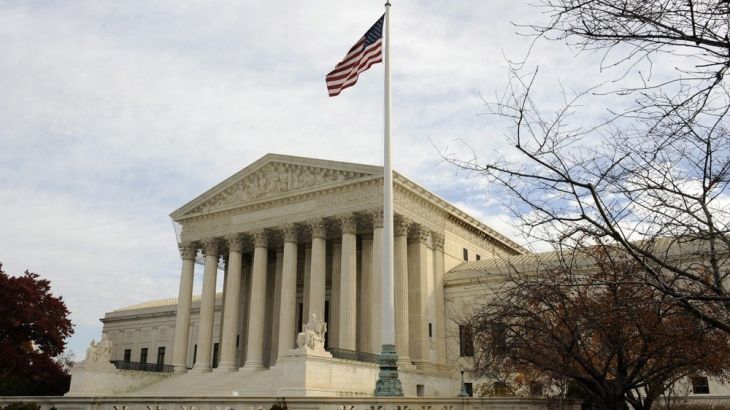
The case of Baby Veronica
Has the US Supreme Court’s new ruling undermined a decades-old law aimed at protecting Native American families?
Among the many rulings handed down by the United States’ Supreme Court this week was a decision on a custody battle that could have a major impact on Native American families.
The 1978 Indian Child Welfare Act (ICWA) made it more difficult for children to be removed from their families.
It was seen as a landmark law for the American Indian rights movement, which virtually ended the controversial practice of taking Native American children from their homes and placing them in foster care, loosening cultural ties and, in the process, jeopardising the future of tribal nations.
In this case they overlooked the cultural aspects of this child, and baby Veronica, needing to know who she is, where she comes from, what her tribal ties are, understanding her heritage and her identity. And it’s unfortunate that this was lost … they seem to be much more focused on the rights of adoptive parents than on what is in the best interests of this Indian child.
But on Tuesday, the Supreme Court ruled in favour of the would-be adoptive parents of a three-year-old girl, Veronica, despite a challenge from her father who is a member of the Cherokee Nation.
A South Carolina court had previously ruled in the father’s favour under the ICWA.
Native American activists have heavily criticised the ruling, calling it an “attack on tribal sovereignty” which only adds a layer of confusion to the existing law.
However, advocates of adoptive parents argue that the ruling simply ensures the ICWA is not abused to harm the well-being of the child.
Baby Veronica was born in September 2009, after her mother had split up with the baby’s father. The day after Veronica’s birth, her mother signed papers giving her up for adoption to a white couple in South Carolina, who took her into pre-adoptive care. After four months, lawyers served the father with the adoption papers.
Veronica’s biological father then went to court to regain custody. In 2011, the court ruled that it had not been proved that Baby Veronica would suffer emotional or physical harm if she lived with her father, and that he was still considered a parent under the Indian Child Welfare Act.
So, having spent some two years with the pre-adoptive couple, Veronica was sent back to the Cherokee Nation, where she has lived with her father since December 2011.
But the Supreme Court’s ruling this week means her case will go back to a South Carolina court, and she could be displaced yet again.
So, what it is at stake in the Baby Veronica case? And are Native American rights at risk?
To discuss this, Inside Story Americas, with presenter Shihab Rattansi, is joined by guests: Megan Lindsey, the director of public policy and education at the National Council for Adoption; Mary Jo Hunter, a professor at Hamline University, who teaches Native American law, and is a member of the Ho-Chunk Nation; and John Nichols from Columbia, South Carolina, who is one of the attorneys for Dusten Brown – baby Veronica’s biological father.
Walmart’s retaliation
On May 28, Walmart workers in three US states began “prolonged strikes” calling for better wages and benefits.
Now, striking Walmart workers say the retail giant has taken steps to retaliate against them.
Several employees who have been protesting for better wages and benefits have been sacked. Walmart says they were let go due to the violations of company rules.
So, are Walmart’s actions legal? And what is in store for these workers?
To discuss this, we speak to Josh Eidelson, a labour reporter for The Nation magazine, who has been following this story closely.
|
“The workers and a few member of Congress I have talked to alleged it is illegal, generally under US law it is illegal to retaliate against workers for going out on strike. Now what Walmart has said in its defence is a few things … first in some cases they claim that these workers were fired for unrelated things … Walmart has also said that it’s not retaliating per se but simply enforcing its attendance policy … [and] has also suggested … that these were not legally protected strikes, that these were intermittent strikes. I had a conversation with the former chair of the National Labor Relations board, he suggested that that argument appeared to be unlikely to hold up.” – Josh Eidelson, a labour report for The Nation magazine |